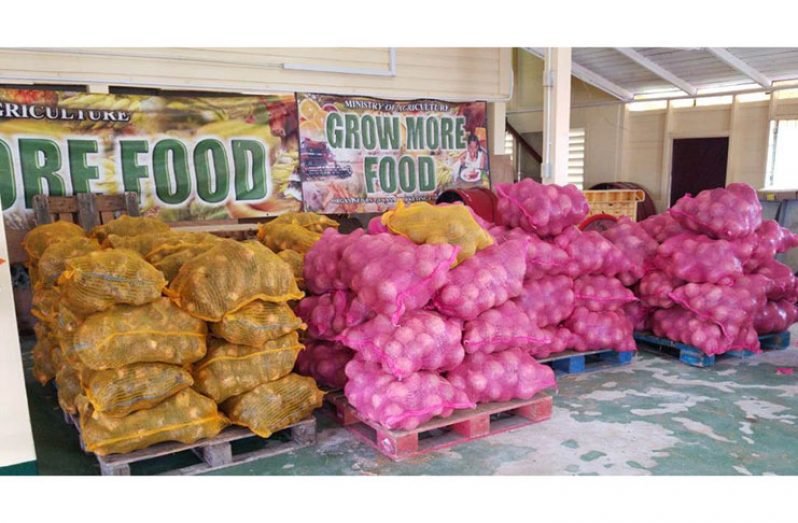–in first quarter of 2023, according to Agriculture Ministry
OWING to critical investments in the agriculture sector, Guyana earned US$2.8M (approximately G$606,112,143) from the export of non-traditional crops in the first quarter of 2023.
According to the Ministry of Agriculture, Guyana, between the period January and March 2023, earned US$2,880,077 from the exportation of non-traditional crops.
This accounts for produce such as fruits, vegetables, seasonings, grain crops, oil seeds, spices roots and tuber crops, among other things.
The returns from this area of exportation are a positive sign, the ministry says, especially given the devastating effects of torrential rainfall in 2021 and 2022, when there was severe flooding.
A quick response from the government enabled scores of farmers to recuperate and return to the fields to restart production.
In Budget 2023, some $2 billion was allocated to increase production through expansion in acreages, and the use of technology with the rollout of three initiatives.
The government will be partnering with the private sector to see the rollout of the three initiatives, which are: The establishment of a regional food hub, greater use of science, technology, research and development, and the promotion of agriculture in the hinterland regions.
Further investments will be made to increase the production of high-value and new crops.
To this end, the sums of $150 million, $153 million, and $200 million have been allocated for advancing the corn and soya bean project, citrus and spices project and the agriculture and innovative entrepreneurship programme respectively.
In addition, preparation has begun for the expansion of turmeric, ginger, black pepper, nutmeg and onions. By the end of 2022, some 62 acres of turmeric and 63 acres were cultivated.
The government further committed to provide shade house materials to farmers at a reduced cost, and increase the distribution of farming equipment, seeds, seedling, and chemical fertilisers.
Importantly, the delivery of extension services will be restructured in order to provide greater support to farmers.
In a previous interview with this publication, Agriculture Minister Zulfikar Mustapha had said that the government remains cognisant of the impact that climate change has had on the agriculture sector, and the ministry has been working to minimise some of the challenges.
The minister said that in addition to propagating climate-smart agriculture, the ministry is also preparing to safeguard farmers and their produce.
“For example, we are setting up more pumps, because these natural-gravity flows now are coming less and less; almost on a yearly basis, where siltation is taking over,” Mustapha said.
He related that with the threat of rising sea levels, the government is taking a keen interest in ensuring the effectiveness of various conservancies across the country.
“… So, we can store more water to irrigate rice fields and so,” Minister Mustapha said.



.jpg)








